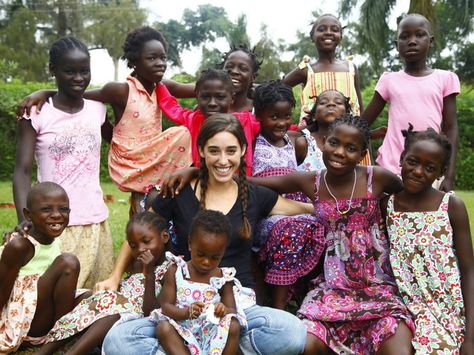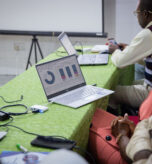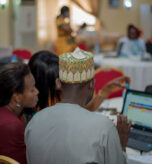According to the World Health Organization, cervical cancer is the fourth most common cancer among women globally, with an estimated 604,000 new cases and 342,000 deaths in 2020. Scientific findings have shown that cervical cancer is caused by Human Papillomavirus (HPV), a viral agent that affects sexual parts of the human body and highly infectious.
Cervical cancer is usually transmitted through sexual intercourse, and it can be contacted through oral, vaginal, and anal sex with an infected person. It can spread through skin-to-skin contact during sex. Aside cervical cancer, the HPV infection also causes genital warts, penile cancer, oropharyngeal and anal cancers in sexually active individuals (both male and female).
According to the HPV Information Centre, in Nigeria, cervical cancer ranks as the 2nd most common cancer among women and the 2nd most frequent cancer among females within age group 15 – 44 years. Current estimates indicate that every year 12,075 women are diagnosed with cervical cancer and more than half, about 7,968, die from the disease. The prevalence in Nigeria and across the globe has prompted the WHO and other stakeholders to consider cervical cancer as a public health concern that must be eliminated through the introduction of the HPV vaccine at an earlier stage of life for females especially those within age group 9 -14 years.
As part of the fight against cervical cancer among women, the Federal Government of Nigeria (FGoN) through the National Primary Health Care Development Agency (NPHCDA), with support from Gavi, is working closely with the Nigerian state governments and other partners on the introduction of HPV vaccine into the country’s routine immunization (RI) schedule, which is to commence on October 24th, 2023, especially for girls within ages 9 -14 years.
The vaccine will be introduced across the states of Nigeria in two (2) phases before its integration into the RI schedule. The Phase I introduction will be carried out in 16 states of the federation and these includes; Abia, Adamawa, Bayelsa, Benue, Enugu, FCT, Jigawa, Taraba, Akwa Ibom, Kano, Kebbi, Osun, Ogun, Bauchi, Lagos and Nasarawa respectively between the period of 24th October to 28th October, 2023.
The Phase II will commence in the first quarter of 2023. This will include the remaining 21 states that were not previously listed in the Phase I.
As part of the preparation for an effective vaccine introduction for girls and to gain a wider coverage, a five (5) – day Multi Age Cohort (MAC) campaign targeting girls aged 9 -14 years will be launched in 16 states starting from October 24, 2023, till October 28, 2023. Sydani Group was contracted to provide technical assistance through NPHCDA to project-manage the quality implementation of HPV vaccines in 8 (Abia, Enugu, Taraba, Adamawa, FCT, Benue, Bayelsa, Jigawa) of the 16 Phase I states.
Similarly, relevant stakeholders have taken ownership and are driving advocacy and social mobilization at their various levels. Recently, Alhaji Isa Idris, the Chief of Jiwa, a prominent ruler, informed members of the Emirate Committee on Health (an association of traditional leaders from all the 6 Area Councils of the FCT, headed by the Chief of Jiwa) to prepare their people for the October roll-out.
Further, the National Association of Proprietors of Private Schools (NAPPS) led by the association chairman, in Gboko, Benue state, are making efforts to cascade the news of the roll-out to other chapter chairmen across the state. The chairman also committed to call for PTA meetings with parents of students in the private secondary schools in Gboko LGA, to better inform them on the essence of the campaign and to get their buy-in and that of their wards.
The involvement of the stakeholders at the grass root level is critical to creating more awareness and clearing doubts and misconceptions surrounding the vaccine. As the rollout of the HPV vaccine approaches, there is need for stakeholders to further intensify efforts and work in synergy with relevant partners and agencies to get more involvements from their subjects.

The Role of everyone in the HPV Vaccine Introduction
With this invaluable knowledge at your disposal, you possess the power to engage in meaningful conversations with adolescent girls within your community and family circles and share this message and informative blogpost within your network. By taking on the role of an educator, you can equip those around you with essential information regarding the virus and the vaccine introduction.
By working together with us in spreading this message, Nigeria will be able to reduce the burden of cervical cancer and ensure a brighter future for the health and well-being of the Nigerian women. Together, we can eliminate this public health nightmare and pave the way for a healthier and happier future.




